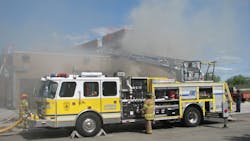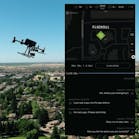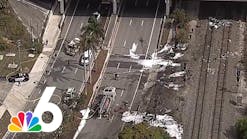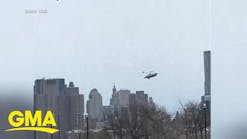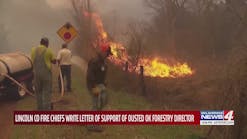Questions That Training Officers Should Ask Themselves
Some time ago, we discussed our training programs and materials and wondered if they were “good enough.” The term good enough could have two completely definitions. For example, it can be a term used when we reach a pre-conceived position in the fire service that we settle into. Conversely, it can be a question posed to ourselves when we look deep within our own goals and performance and decide if we are educated and effective to a level that we can fulfill our obligations to the service that we love. I choose to utilize the latter of the two definitions.
When you stand in front of a class, either in an academy setting or a drill night at your station, you bring certain powers with you that take place even before you start your lecture. You are the perceived expert in the field you are lecturing about, so you bring expert power to the class. You are also imparting wisdom to those who chose to listen to you talk about the subject in question; this results in the information power the instructor has as well (see Photo 1). The big question is: can you deliver when it is time for training?
Are You Good Enough?
We can be our own worst critic at times; however, it is necessary to look within our own competencies and determine where improvement is needed. Additionally, it is beneficial to reach out for a mentor and ask them where your abilities are, and where they should be. Here are some points of consideration, for your view within your skills:
1. How many hours of training do you attend? Many instructors forget that they were students once, and must continue to be students as technology moves forward. It also serves as continuing education as a student, not as an instructor (see Photo 2).
2. How does your portfolio look? Being a firefighter is truly a noble calling; but it is a springboard for continuing education. Becoming a better firefighter comes with personal enrichment. Earning further certifications such as EMT, fire inspector, hazmat specialist, rescue specialist, and fire officer trains your focus on the bigger picture of the incident, not just one aspect of it.
3. Do you know the basics of our profession? From my indoctrination into the fire service until today, I have reviewed seven versions of the basic firefighting manual, each one of them having their own changes. This proves my point; the fire service is a constantly changing, dynamic profession. If you are not keeping up with changing technology and skills, not only are you inefficient, you’re also a liability on the fireground.
4. Do you practice transformational leadership? Reviewing your department’s operations on-scene helps to identify shortfalls in capabilities under stress. Identifying these areas of improvement is the first step in improving the member’s competency and efficiently on the emergency scene.
5. Can you teach someone in your firehouse/class expertly about every piece of equipment on your apparatus? You are assigned to a piece of apparatus and you are expected to be expertly competent on every piece of equipment from the front bumper to the tailboard. The newest member of your company stops you and asks for assistance in understanding how the device works. Would you be able to answer any question, or would you have to refer them to another person? What does that say about you own credibility? (see Photo 3)
6. How do you prepare for your training session? To me, the lack of preparation by an instructor is the ultimate insult to the student. The environment for learning is a fragile one early into the lesson, The lack of preparation and a weak grasp of the topic at hand will ruin any chance of beneficial learning for the students.
7. When was the last time your lesson plans or training library in your firehouse has been updated? Lesson plan development doesn’t end with the press of the “print” button. All of the lesson plans that I use and have developed are reviewed annually, at a minimum. Furthermore, some topics require more frequent review, such as most technical rescue topics (see Photo 4). The bottom line: the success of your department members rest completely on how they are trained and they will react and respond as they have been taught.
8. Is the documentation for the training division in order and complete? Today’s responders can be dispatched to a wide array of incident types. A base line training level should be required for all members to belt-in on the apparatus. There are times when the documentation of such training will be questioned, such as during an ISO review. Many points of the rating schedule come from a department’s ability and level of training for their members, and this will require documentation for the evaluator. Today, many incident reporting software programs provide database programs to track a member’s continuing education.
9. What does your personal training library at home look like? How do you research and confirm your training session information? Your library should include the most up-to-date versions of the basics, advanced, and top-notch firefighting skills, fire officer skills, rescue topics, and code enforcement topics in your library. Furthermore, along with hard-copy materials, electronic copies and digital media copies should be available for portability and use wherever the training is to take place.
10. You are a leader – You should never feel like you’re “good enough.” Case Closed.
Conclusion
A further update as well on my last discussion. My son is now nine and is continuing his journey to achieve his 1st degree Black Belt in Tae Kwon Do. A few years ago, he thought he was good enough; even at his young age, he now understands that he shouldn’t settle for good enough. I am helping him reach his goals, and I found a way to assist him in understanding what it takes for him to do so. So I now train with the adults at his school, and while it may take me a bit longer to earn my Black Belt, my goal will always be to be like my son, who isn’t happy with just being good enough.Until next time, stay focused and stay safe.
MICHAEL DALEY, a Firehouse.com Contributing Editor, serves with Monroe Township, NJ, Fire District No. 3 as a lieutenant and serves on New Jersey Task Force 1. He earned the Master Fire Instructor certification from the ISFSI and is an instructor at the Middlesex County Fire Academy where he developed rescue training curriculum. He is a managing member of Fire Service Performance Concepts.
